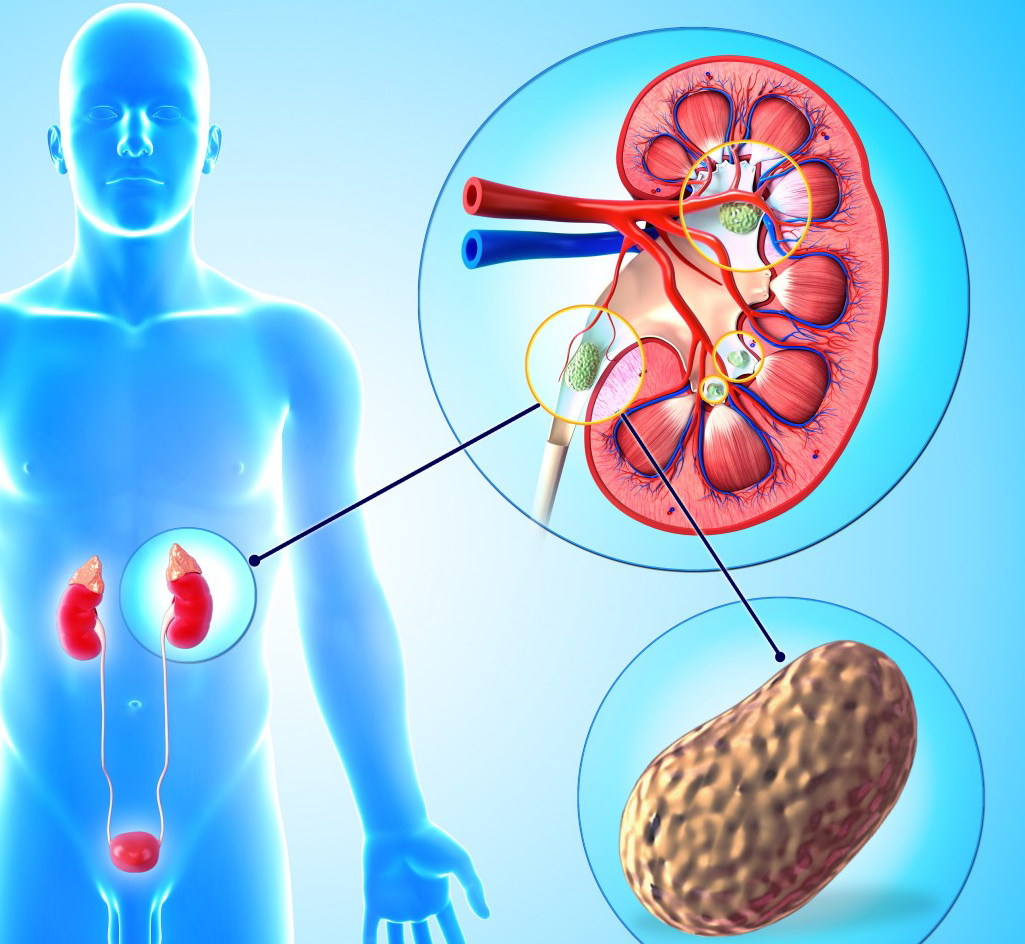Kidney Stones, Causes and Prevention
Kidney stones can be excruciating, but there are ways to reduce them on your own. Learn what causes kidney stones and what you can do to prevent them.
What are kidney stones, and what are kidney stones made of?
Kidney stones are aptly named. They are hard, rock-like objects made from chemicals in your urine, specifically the waste dissolved in it, says the National Kidney Foundation (NKF). They tend to form when your urine contains too much waste and too little liquid.
The crystals that begin to form attract other elements and will grow unless you pass the “stone” via your urine. Usually, your kidneys eliminate these chemicals before they can solidify, but certain factors such as dehydration can promote stone formation.
YOU MIGHT ALSO LIKE: Symptoms of Kidney Problems
Chemicals that make up kidney stones include calcium, oxalate, urate, cystine, magnesium, xanthine, and phosphate.
The four main types of stones
- If you’ve had them, they were most likely calcium-oxalate stones, usually a result of consuming high levels of supplemental calcium or vitamin D, some medicines, genetics, and other kidney problems.
- Eating too much animal protein or your genetics can cause uric acid stones.
- Less common are stones labeled as struvite; women have them more often than men. These can grow very large, forming branches like those of a deer antler, and could harm your kidneys more than other types of stones. Kidney infections can cause struvite stones, says the AKF. The fourth type, called crystine, are very rare and caused by cystinuria, a genetic kidney disease.
What causes kidney stones?
Possible causes of kidney stones include drinking too little water, exercise (too much or too little), high blood pressure, diabetes, obesity, weight loss surgery, some types of medicine, or eating food with too much salt or sugar. Infections and a history of kidney stones in your family could be causes as well.
Consuming too much fructose (fruit sugar) increases the risk of developing a kidney stone, the NKF says. Fructose is common in today’s diet and can be found in a wide range of foods in the form of high-fructose corn syrup.
The pain kidney stones cause generally occurs when they get too big to be passed, causing a backup of urine in your kidney, ureter, the bladder, or the urethra, says the NKF. This backup and irritation from inflammation are the sources of the pain, which can range from mild to gut wrenching.
If you have symptoms of a kidney stone, particularly for the first time, you should see a doctor to rule out potentially more serious problems and for advice about dealing with the stone.
For people who have a history of kidney stones, short of painkillers your doctor can prescribe, you can take some widely accepted steps at home to remove the source of your pain: Getting the stone to pass.
How to pass or remove kidney stones
First, drink a lot of water. There’s a good chance that you didn’t drink enough water in the first place, and dehydration leads to concentrated urine full of the chemicals that can develop into stones.
Next, consider taking some ibuprofen, a non-steroidal, anti-inflammatory drug (NSAID) that may help reduce inflammation of the ureter caused by contact with a large stone.
In most studies of NSAIDs versus prescribed narcotics, “NSAIDs have shown equal or greater efficacy for pain relief, shorter duration to pain relief, with equal or fewer side effects,” according to the American Urological Association.
Applying heat can also provide some relief. Take a warm bath or shower, using a heating pad or hot water bottle.
Although the pain may be so intense you want to lie down, you should try to remain upright and even move around, James G. Roberts, author of “Kidney Stone 911,” recommends. “The gravity as well as the movement will help to facilitate the downward movement of the stone,” he writes.
If you can’t pass the stone or stones on your own, or are too nauseous to drink fluids or take NSAIDs, you may need medical intervention, such as medication that may dissolve the stones or procedures that either breakup the stones or remove them if the stones are too big to pass (larger than five millimeters).
Sometimes you won’t even know you passed a kidney stone unless you notice some bleeding. Sometimes you’ll see a stone pass in your urine. Your doctor may give you a sieve to strain your urine and catch the stone for lab analysis.
Other times, you will be looking for pain relief any way you can find it. The pain can be bad enough to cause you to become nauseated and you may vomit.
Some unfortunate people are just prone to forming kidney stones, and many report having had 10 to 20. Otherwise, you may be better off learning more about how to prevent kidney stones from forming rather than focusing on how to get rid of them.
YOU MIGHT ALSO LIKE: Can a Supplement Help Your Kidney Stones?
Updated:
January 12, 2023
Reviewed By:
Christopher Nystuen, MD, MBA and Janet O'Dell, RN
